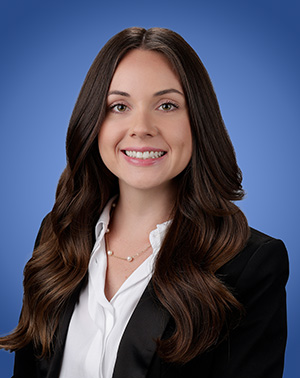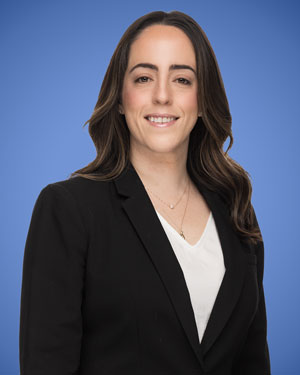Lozano Smith is known for and provides the highest quality special education expertise in California. The firm's special education attorneys have collectively handled matters involving virtually every conceivable legal issue in the field.
For example, Lozano Smith:
- Was selected to represent CSBA in the mandated cost reimbursement litigation against the State of California that resulted in a $1 billion settlement in favor of the school districts.
- Has represented districts in countless mediations, due process cases, and numerous appeals to federal District Court and the Ninth Circuit Court of Appeals.
- Has advised Special Education Local Plan Areas (SELPAs) throughout California to develop Joint Powers Authorities (JPAs) and local plans, and has advised school districts through the process of becoming single district SELPAs.
- Developed special education manuals, sample policies and procedures and a variety of forms and checklists.
- Is often asked to present at local, state, and national conferences, including ACSA's Every Child Counts Conference and LRP.
- Develops and presents annual Special Education Legal Consortiums and webinar series at numerous locations throughout the state.
Additionally, Lozano Smith represents and advises clients regarding:
- Individualized Education Program (IEP) team meetings
- Section 504 meetings
- Unilateral placement of students by their parents in nonpublic schools or residential treatments centers
- IDEA and Section 504 resolution sessions, mediations, prehearing conferences and hearings
- IDEA and Section 504 discipline issues and hearings
- Bullying, discrimination and harassment claims and complaints
- Office for Civil Rights and California Department of Education investigations and complaints
- Special education issues related to charter school students
- Interagency disputes
- Case analysis and preparation
- Revocation of consent issues
- Pre-hearing motions, evidence preparation and witness preparation
- Settlement analysis and agreements
- Provision of mental health services
- California Superior Court writs of administrative mandamus
- California Superior Court applications for temporary restraining orders (removing dangerous students and/or protecting school personnel)
- United States District Court and the Ninth Circuit Court of Appeals
- United States District Court claims for attorneys' fees and costs
To minimize client costs, the firm's Special Education Practice Group has created an expansive internal library of special education templates including settlement agreements, presentations, manuals, policies, procedures, forms, pleadings, statutory settlement offers, legal opinion letters and memorandums, prehearing conference statements, opening briefs, witness questions and closing briefs.
Training for Special Education Administrators
Hundreds of special education administrators attend the Lozano Smith Special Education Legal Consortium (SELC) each year. This half-day seminar is conducted throughout the state and for individual clients as requested. It provides in-depth information on a variety of topics. Recent topics include Responding to Parent Requests, Parent Participation, Common Core and Special Education, and the ever-popular Legal Update. Topics for the SELC and all of the firm's workshops are carefully selected to highlight changes in the legal environment in which administrators must work.
In addition to the SELC, we provide in-service trainings to school districts on a wide variety of topics, ranging from student discipline to Section 504 to avoiding disproportionate representation of minority students in special education. Our attorneys have also been invited to make presentations at numerous conferences, such as the ACSA Every Child Counts Symposium, LRP National Institute, and LRP School Attorneys Conference.
California Expands Deaf and Hard-of-Hearing Special Education Supports
November 12, 2025 Number 51 On July 14, 2025, Governor Gavin Newsom signed Assembly Bill (AB) 784, amending Education Code section 56031. Individualized education program (IEP) teams can now provide deaf and hard-of-hearing (DHH) services as stand-alone supports to students who do not require additional specialized instruction. This update empowers IEP teams to better tailor services to meet the unique DHH needs of students, promoting more inclusive and responsive individualized ...
New Law Enhances Continuity of Special Education for Transfer Students
November 6, 2025 Number 49 On October 7, 2025, Governor Gavin Newsom signed Assembly Bill (AB) 1412, enhancing educational continuity for students with disabilities who transfer into California schools from out-of-state, with a particular focus on students of military families. AB 1412 amends Education Code sections 48204.3 and 56325 to establish procedures to expedite records transfers, to require faster implementation of individualized education programs (IEPs), and to address ques...
No Special Hurdles U.S. Supreme Court Rejects Higher Burden for Students in Disability Discrimination Claims
June 27, 2025 Number 26 On June 12, 2025, the United States Supreme Court issued a decision in A.J.T. by and through A.T. v. Osseo Area Schools, Independent School District No. 279 (U.S., June 12, 2025, No. 24-249) 605 U.S. __, holding that students bringing disability discrimination claims under the Americans with Disabilities Act (ADA) and the Rehabilitation Act of 1973 cannot be held to a higher legal standard solely because their claims arise in an educational context. Specifical...
OCR Warns of Discrimination Risks Caused by Use of AI
January 2025Number 3The U.S. Department of Education’s Office for Civil Rights (OCR) published new guidance, “Avoiding the Discriminatory Use of Artificial Intelligence,” highlighting how schools’ use of artificial intelligence (AI) could lead to civil rights violations related to racial, sexual, and disability discrimination. The guidance document provides examples of AI-related scenarios that might trigger OCR investigations under federal civil rights laws. While AI ...
Important Updates Regarding Independent Study Programs
August 2024Number 38The 2024 Education Omnibus Budget Trailer Bill, also known as Senate Bill (SB) 153, includes notable changes to the parameters for independent study programs. These changes, as further outlined below, affect both traditional and course-based independent study, and were made effective as of June 29, 2024. In addition, SB 114, last year’s budget trailer bill, made changes to independent study requirements in the event of emergency school closures.Changes to Traditional...
What is an Elementary School? California Department of Education Revises its Guidance on Equitable Services and Proportionate Share for Parentally-Placed Private School Preschoolers
August 2024 Number 37 The California Department of Education (CDE) recently released updated guidance regarding equitable services and proportionate share funding for parentally-placed private school students with disabilities. Reversing prior guidance, CDE now opines that the equitable services provisions do apply to preschool students with disabilities, when they are parentally-placed at a private school that offers transitional kindergarten, kindergarten, or other elementary grades. ...
Communication is Everything: Ninth Circuit Declines to Award Private School Tuition to Parents who Failed to Respond to School District’s Offer to Hold IEP Meeting
May 2024Number 26In Newport-Mesa Unified School District v. D.A. (9th Cir. 2024, No. 23-55351), the Ninth Circuit Court of Appeals held in an unpublished decision that the school district had no obligation to convene an annual individualized education plan (IEP) meeting when the parents of a parentally-placed private school (PPPS) student who had previously received special education and related services from the school district failed to indicate any interest in a current offer of a free app...
Representative Cases
| Represented CSBA in the mandated cost reimbursement litigation against the State of California that resulted in a $1 billion settlement in favor of the school districts. |
| Represented districts in countless due process cases, mediations and numerous appeals to federal District Court, and the Ninth Circuit Court of Appeals. |
| G.M. v. Dry Creek Joint Elementary School District, Ninth Circuit Court of Appeals Case No. 12‐ 17242. In 2014, on appeal, the Ninth Circuit issued an unpublished Memorandum affirming an OAH due process hearing in favor of the District. The Ninth Circuit panel affirmed the U.S. District Court’s grant of summary judgment in the District’s favor on the plaintiff’s section 504 claims, as well as an award of attorneys’ fees sanctions against the parent’s attorney. |
| F.S.D. v. Santa Barbara Unified School District, U.S.D.C. Central District of California, Case No. 2:13‐cv‐03191‐RGK‐PJW. Received a favorable decision for the district on an appeal of a due process decision, coupled with various civil rights claims under section 1983, section 504 and the ADA. Lozano Smith represented the district successfully during the underlying due process decision and appeal of same, defending OAH’s ruling, which the Court affirmed in full. As a result of that victory and elimination of any remaining viable theories for the plaintiff’s civil rights claims, plaintiff ultimately stipulated to dismissal of the remaining causes of action in the litigation. |
| Alex G. v. Board of Trustees (E.D. Cal. 2004) 332 F.Supp.2d 1315. Lozano Smith attorneys successfully defended Davis Joint Unified School District on all counts in federal civil rights litigation arising out of a special education dispute. Most notably, the District's successful motion to dismiss resulted in one of the first published decisions applicable in California to stand for the proposition that a plaintiff cannot predicate a suit for damages under 42 U.S.C. section 1983 on alleged violations of the Individuals with Disabilities Education Act. |
| Alex G. v. Bd. of Trustees (E.D. Cal. 2005) 387 F.Supp.2d 1119. Lozano Smith successfully moved for partial summary judgment on behalf of the District, resulting in one of the first published decisions applicable in California to stand for the proposition that a plaintiff seeking to impose liability under Section 504 "must show that the educational decisions relating to the student were so inappropriate as to constitute either bad faith or gross misjudgment." |
| Huerta v. San Francisco Unified School District (N.D. Cal. 2011). Lozano Smith successfully opposed a parent's appeal of the OAH's denial of a very expensive stay put placement. |
| J.F. v. Magnolia School District, U.S.D.C. Central District California, Case No. CV14‐01136‐JVS-AJWx. On behalf of the District, Lozano Smith obtained a victory before OAH regarding a student’s placement, which was subsequently appealed to federal district court. Lozano Smith successfully obtained resolution of the matter, through mediation and a written settlement agreement, resulting in the student’s private placement coupled with a waiver of all claims, and certainty for the district going forward. |
| In the case In re Q.N., Sacramento County Superior Court Juvenile Division, Lozano Smith successfully opposed a motion for joinder of Sacramento City Unified School District (Minute Order Apr. 1, 2010). In the juvenile matter, a minor attempted to join multiple school districts, alleging they were responsible for his special education out-of-state residential placement to which he was referred by the County Mental Health Department, while housed in juvenile hall. Lozano Smith successfully demonstrated that so long as the student remained in juvenile hall, the County Office of Education, and not any individual school district, had responsibility for placement. |


































